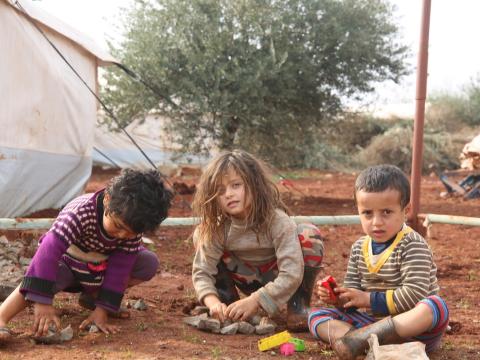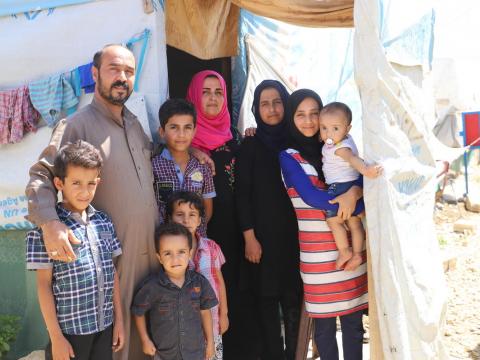
Hope despite a thousand cuts
Alexandra reflects on the story of any Syrian refugee, as World Refugee Day nears.
By Alexandra Matei
Since the beginning of times, the Bible has guided humankind on what is just and not; what is good and bad. The modern world integrated these teachings into what we now know as Universal Human Rights, the United Nations Convention of the Rights of the Child, or international humanitarian and human rights laws.
These legally binding (and in some cases unbinding) standards are expected to regulate governments’ behaviour towards their citizens in the same fashion the Bible supports each one of us in choosing right and showing kindness to strangers – like those seeking a safe haven from violence, persecution and abuse.
There are 80 million people who have been made strangers from their homes as I write this. Almost 7 million of them are Syrians who have left their country, carrying just hope as their luggage – they could not carry anything else when they rushed in the middle of the night to save their lives.
“The heavy bombardment pushed us out of our home. I remember one of the times we had to move – it was during the month of Ramadan while we were fasting. We had to stay in a tent and the weather was very hot, my brothers were sick because of the severe heat and the constant bombing,” 19-year-old Sarah recalls.
Their hopes are cut by a thousand knives as we saw the Syria conflict pass the 10-year mark this year, and as we prepare to commemorate World Refugee Day on 20 June. The 6 million children who have been born since the conflict started in Syria know nothing but war and bear the consequences of a failed system; a failure that costs them their childhood, their mental well-being, and takes away their God-given right: to hope.
A lack of hope does not impact children’s lives in the short term only; as the well-renowned psychologist and Holocaust survivor, Viktor Frankl, reflected on his own experiences in the camps:
Hope is human’s last freedom and everything can be taken from a person, but this.
Syrian children are faced with the challenge of “saving up hope” as they say goodbye to their homes, as they cram in the back of the trucks with hundreds others – sometimes alone – as they try to adapt to living without shelter or in dire conditions, as they try to make a sense of a new place or when they are faced, so many times, with hostility, fear and disapproval. They are the “strangers” the world is called upon to accept, integrate and protect.
But, just like in the Messiah – the controversial Netflix TV series – the world is not prepared to welcome the story of a stranger that billions of followers already believe in. The show depicts a man from Syria who performs miracles, speaks brilliantly in front of people, but who might also be a complete fraud for the secular world we live in. As the action takes place in 2020, it begs the question – what would you do if the Messiah turned up in our countries now? The answer to this is not hidden from us or from Syrian refugees; just as it was not hidden from the people of Nazareth. The answer lies in the policies of refoulement, in stigma, discrimination and marginalisation of the “stranger”.
The TV series is a reminder of modern forced displacement patterns, and the potential those fleeing war, and persecution have for our societies. The potential to hope and support societies grow and thrive. How can we deny them this?
Alexandra Matei is the Advocacy and Communications Director for World Vision's Syria Response. Follow Alexandra on Twitter @ale_matei
